George Washington wrote to Marquis de Lafayette, November 15, 1781:
"It follows then as certain as that night succeeds the day, that without a decisive naval force we can do nothing definitive, and with it, everything honorable and glorious."
Washington wrote to Lafayette, 15 August 1786:
"Would to Heaven we had a navy able to reform those enemies to mankind, or crush them into non-existence."

The birthplace of the American navy was in Marblehead, Massachusetts, where hardy fishermen and sailors formed the Massachusetts Naval Militia.
In June of 1775, citizens acting as merchant mariners captured the British schooner HMS Margaretta around Machias, Massachusetts (present-day Maine).
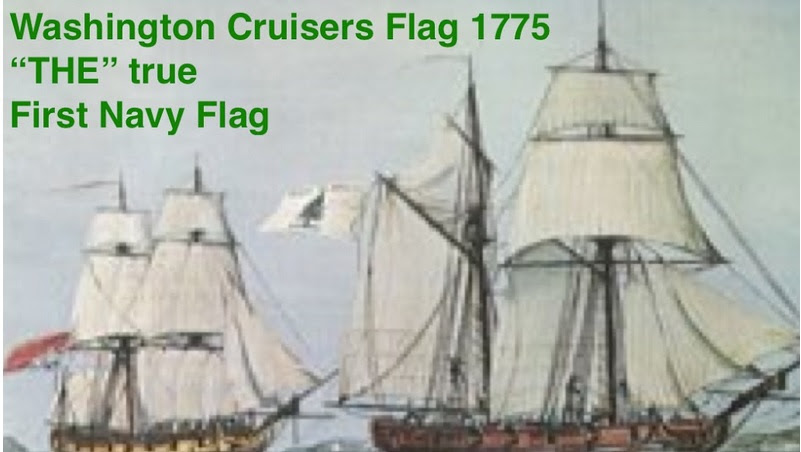
That same month, General George Washington, with the help of merchant ship owner Colonel John Glover of Marblehead, Massachusetts, chartered and outfitted several ships to interrupt the British supplies.
On September 2, 1775, George Washington personally financed America's first armed naval vessel, the USS Hannah, named for John Glover's daughter.
Less than a week later, on September 7, 1775, the USS Hannah captured the British ship HMS Unity, the first prize taken by a U.S. naval vessel.

- Franklin,
- Warren,
- Hancock, and
- Lee.
This flotilla, sometimes referred to as Washington's fleet, captured 55 British ships.
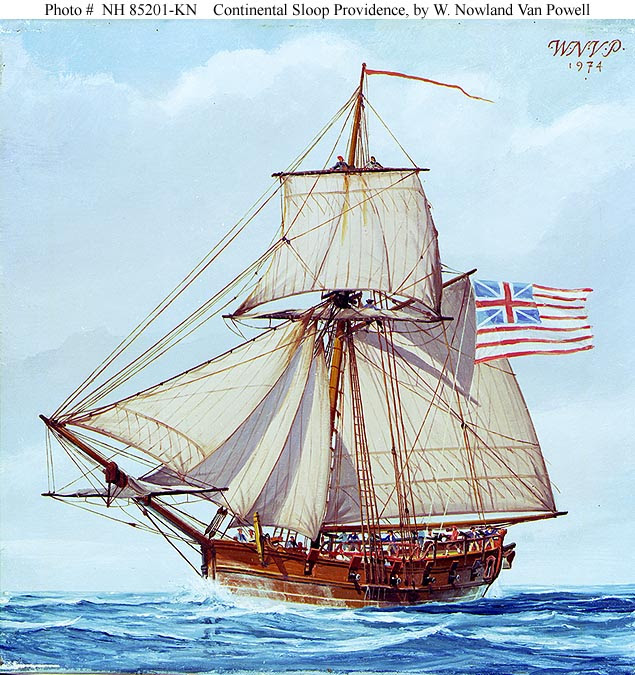

On March 3, 1776, the U.S. Marine Corps, infantry units aboard naval vessels, carried out America's first amphibious assault by sailing to the Bahamas and capturing Fort Montague, a British ammunition depot, and Fort Nassau, a naval port.
In 1785, the Continental Navy was dissolved, but on August 4, 1790, Alexander Hamilton helped create the U.S. Revenue-Marines - the origin of the U.S. Coast Guard.

- USS United States,
- USS Constellation, and
- USS Constitution.
President John Adams, who shares the title "Father of the American Navy" with John Barry and John Paul Jones, signed the act establishing the Department of the Navy on April 30, 1798. Adams wrote:
"Naval power ... is the natural defense of the United States."
In 1798-1799, the U.S. Navy and Marines were involved in the Quasi-War with France.
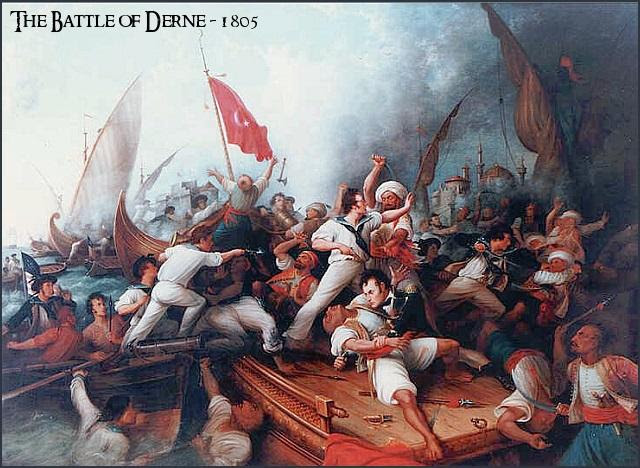
In 1801-1805, the Navy and Marines fought the First Barbary War.
In 1812-1815, the Navy and Marines fought the War of 1812.
In 1815, the Navy and Marines fought the Second Barbary War.
The U.S. Navy protected American ships from piracy in the Caribbean, the Mediterranean, off the coasts of South America and Africa, and in the Pacific.
Beginning in 1819, the U.S. Navy and the U.S. Revenue-Marine Cutters suppressed the slave trade by seizing dozens of slave ships.


In 1853, the U.S. Navy and Marines sailed across the Pacific with Commodore Matthew Perry, whose gunboat diplomacy opened trade with Japan.

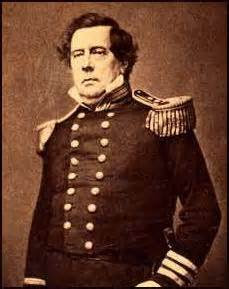
Matthew Perry stated:
"I have just finished the Bible; I make it a point to read it through every cruise. It is certainly a wonderful Book--a most wonderful Book ...
From boyhood I have taken a deep interest in Christianizing the heathen, and in imparting a knowledge of God's revealed truth everywhere."
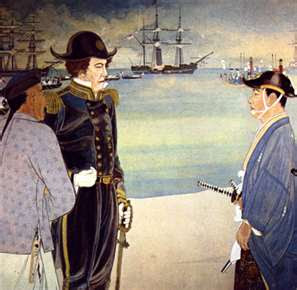
"Before Jehovah's awful throne
Ye nations bow with sacred joy."
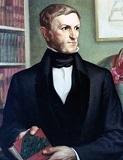
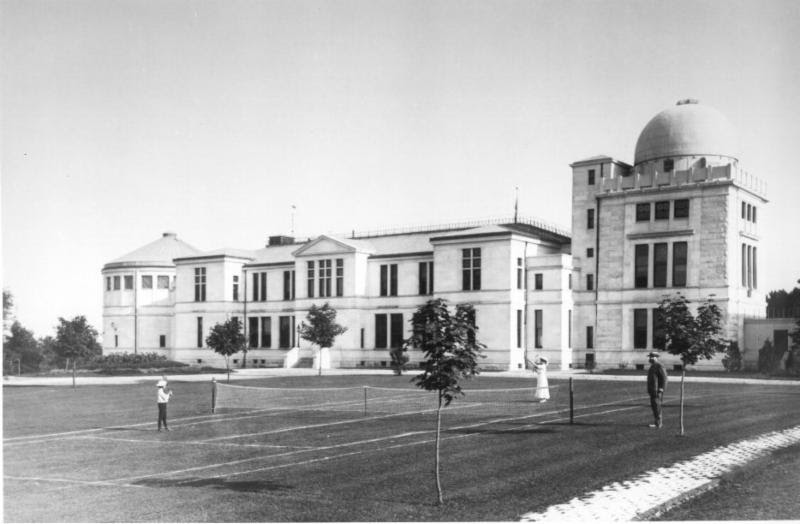

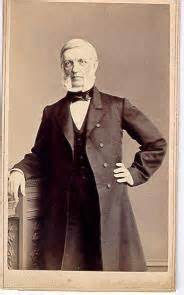
"Puritanism had exalted the laity ...
For him the wonderful counsels of the Almighty had appointed a Savior;
for him the laws of nature had been compelled and consulted, the heavens had opened, the earth had quaked, the Sun had veiled his face, and Christ had died and risen again."

Puritans comprised about 600,000 of the 3 million Americans at the time of the Revolution.

- 900,000 Scotch and Scotch-Irish Presbyterians;
- 400,000 German or Dutch Reformed; Protestant French Huguenots and Episcopalians, who had a Calvinistic confession in their 39 Articles.

"He who will not honor the memory and respect the influence of Calvin knows little of the origin of American liberty."
"For the regeneration of the world it was requisite that the Divine Being should enter the ... hearts of men and dwell there ...
That He should be known, not as a distant Providence of boundless power and uncertain and inactive will, but as God present in the flesh ...
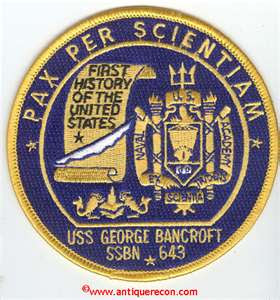
The idea of GOD WITH US ... dwells ... in every soul that sighs for redemption."

"The President ... with heartfelt sorrow announces to the Army, the Navy, and the Marine Corps the death of Andrew Jackson ... He resigned his spirit to his Heavenly Father ...
He believed the liberties of his country imperishable and ... departed from this life in a full hope of a blessed immortality through the merits and atonement of the Redeemer.
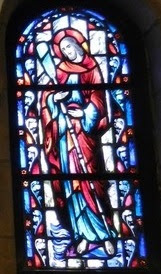


One of those heroes was Edward Preble. "Preble Hall" was named for him, which houses the U.S. Naval Academy Museum.

Jones had fought during the Revolutionary War and afterwards fought Muslim Turks on the Black Sea for Catherine the Great of Russia.
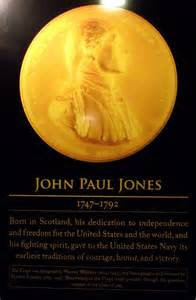
Jefferson wrote to General Washington, 1788:
"The war between the Russians and the Turks has made an opening for our Commodore Paul Jones. The Empress has invited him into her service."
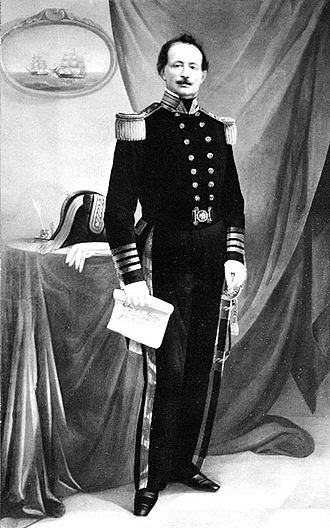
Levy fought in the War of 1812 and commanded the Mediterranean squadron against Muslim Barbary pirates.
He was responsible for ending the practice of flogging in the Navy.
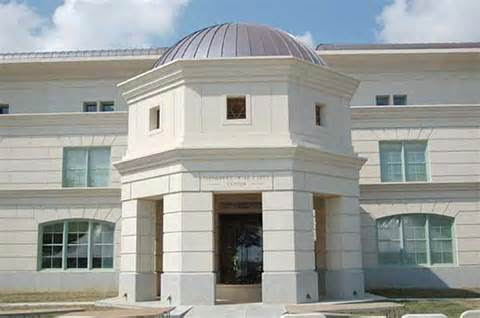
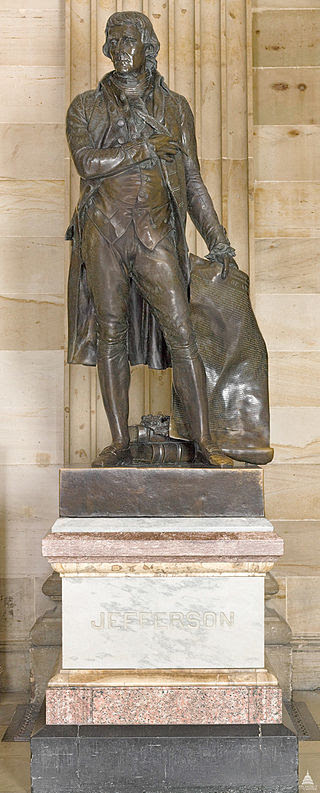
A chapel at Annapolis was named after Uriah P. Levy, as well as a WWII destroyer.
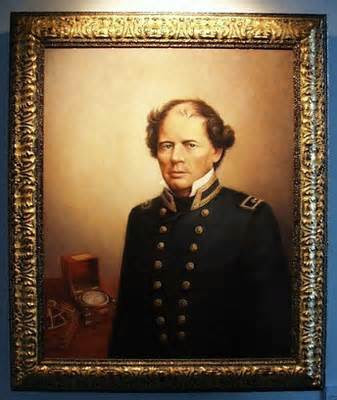
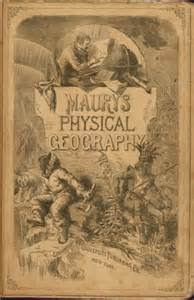
Known as the "Pathfinder of the Seas" for pioneering the charting sea and wind currents, Matthew Fontaine Maury wrote in Physical Geography of the Sea, 1855:
"I have always found in my scientific studies, that, when I could get the Bible to say anything on the subject it afforded me a firm platform to stand upon, and a round in the ladder by which I could safely ascend.
As our knowledge of nature and her laws has increased, so has our knowledge of many passages of the Bible improved.
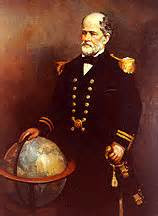
And as for the general system of circulation which I have been so long endeavoring to describe, the Bible tells it all in a single sentence: 'The wind goeth toward the South and returneth again to his circuits.'"
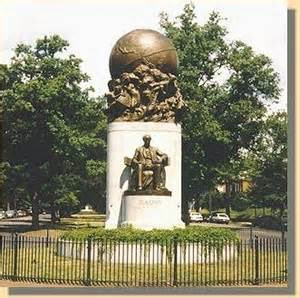
Maury's tombstone at the U.S. Naval Academy has engraved the Bible verse, Psalm 8:8, which had inspired him, "Whatsoever passeth through the paths of the seas."
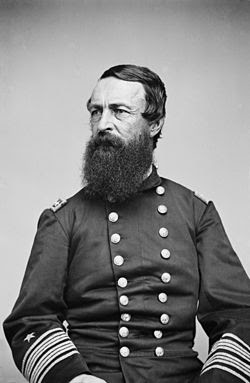
Civil War hero, Admiral David Dixon Porter, became superintendent of U.S. Naval Academy. He wrote:
"When one sees how much has been done for the world by the disciples of Christ and those professing the Christian religion,
he must be astonished to find anyone who hesitates to believe in the Divine origin of Jesus and the wonderful works He performed, all of which are so beautifully portrayed by the author of the work under consideration;
and no man or woman of real intelligence would hesitate to believe that it is only through Christ that sinners can be saved, unless their vanity is so great that they are capable of saving themselves without an intermediary."

"Surely seamen are worthy to appear in your Cloud of Witnesses.
Not only did our Savior consort with the seamen of Galilee, but there are many examples in history of noted naval heroes who exhibited the highest Christian virtues.


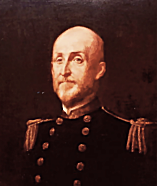
"Upon the Bible my life rests for whatsoever is good and strong.
Convinced that Christ is the Son of God, in the deepest sense attributed to those words, I not only find in this belief all the power of my life, but, in the account of His personality, an intellectual satisfaction that surpasses any other in its inexhaustible freshness, daily renewing my strength, and throwing an ever-increasing light upon the problems and difficulties of life.
While the faith in His teachings thus meet all my mental exigencies, I in no way derogate from its supernatural sanctions.
He is to me one who speaks with authority no less than Divine, to whom I submit where I do not understand."

"The idea of America is to serve humanity ... I know something of the history of the struggle of mankind for liberty.
When I look at that flag it seems to me as if the white stripes were strips of parchment upon which are written the rights of man, and the red stripes the streams of blood by which those rights have been made good ...
It is, as it were, a sort of floating charter that has come down to us from Runnymede, when men said, 'We will not have masters ... we will seek our own liberty ...'"
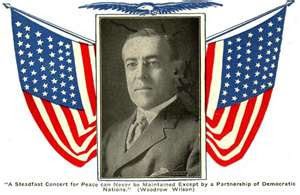
"You are champions of your fellow men, particularly of that great body one hundred million strong whom you represent in the United States ...
Things that show the moral compulsions of the human conscience, those are the things by which we have been building up civilization."
"The importance ... the prescribed weekly rest, the sacred rights of Christian soldiers and sailors, a becoming deference to the best sentiment of a Christian people, and a due regard for the Divine Will demand that Sunday labor in the Army and Navy be reduced to the measure of strict necessity."

"Not long ago I heard a Navy chaplain refer to the sage advice of the Apostle to put first things first ...
If we are to heed the admonition to put first things first ... one of the main essentials which lies at the very beginning of civilization is that of security.
It is only when people can feel that their lives and the property which their industry has produced today will continue to be safe on the morrow that there can be that stability of value and that economic progress on which human development has always rested ...
--
Download as PDF ...
American Minute is a registered trademark of William J. Federer. Permission granted to forward, reprint, or duplicate.



